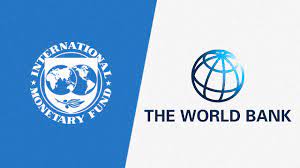The International Monetary Fund (IMF) has announced that sub-Saharan Africa will be allocated a third seat on the global lender’s executive board, while the World Bank has warned the central banks in Nigeria, Ethiopia, and Uganda not to overplay their hand in getting involved in risky monetary initiatives.
Sub-Saharan Africa will have a “stronger voice” at the International Monetary Fund with a third seat on the global lender’s executive board, IMF chief Kristalina Georgieva has said ahead of next week’s IMF and World Bank meetings in Marrakesh, Morocco — the first gathering on the continent since 1973. The IMF executive board is responsible for conducting the Washington-based institution’s day-to-day business and currently has 24 directors, with the United States holding the largest share of votes. “Ultimately, what it will mean is (a) stronger voice for Africa,” Georgieva said in Abidjan. The IMF and World Bank will tackle the thorny issue of institutional reform in Marrakesh as they face growing calls to better address debt and climate change in poorer countries.
Meanwhile, the World Bank has cautioned the central banks of Nigeria, Ethiopia, and Uganda to avoid taking any unusual initiatives that may jeopardize their monetary policies. These initiatives, according to the international financial institution, include: “monetizing the fiscal deficit, direct lending interventions, untargeted subsidy programs, and foreign exchange controls.” It highlighted the significant problem of inflation that monetary authorities in the area confront, notably in these African countries that are experiencing “underdeveloped financial systems, a substantial informal sector, and a lack of coordination between monetary and fiscal policies.” The Work Bank’s ‘Africa’s Pulse’ report published in 2023 ascribed the inflationary difficulties to a number of causes, including “a global demand slowdown, eased supply chain disruptions, lower commodity prices, and stricter monetary policies.”



